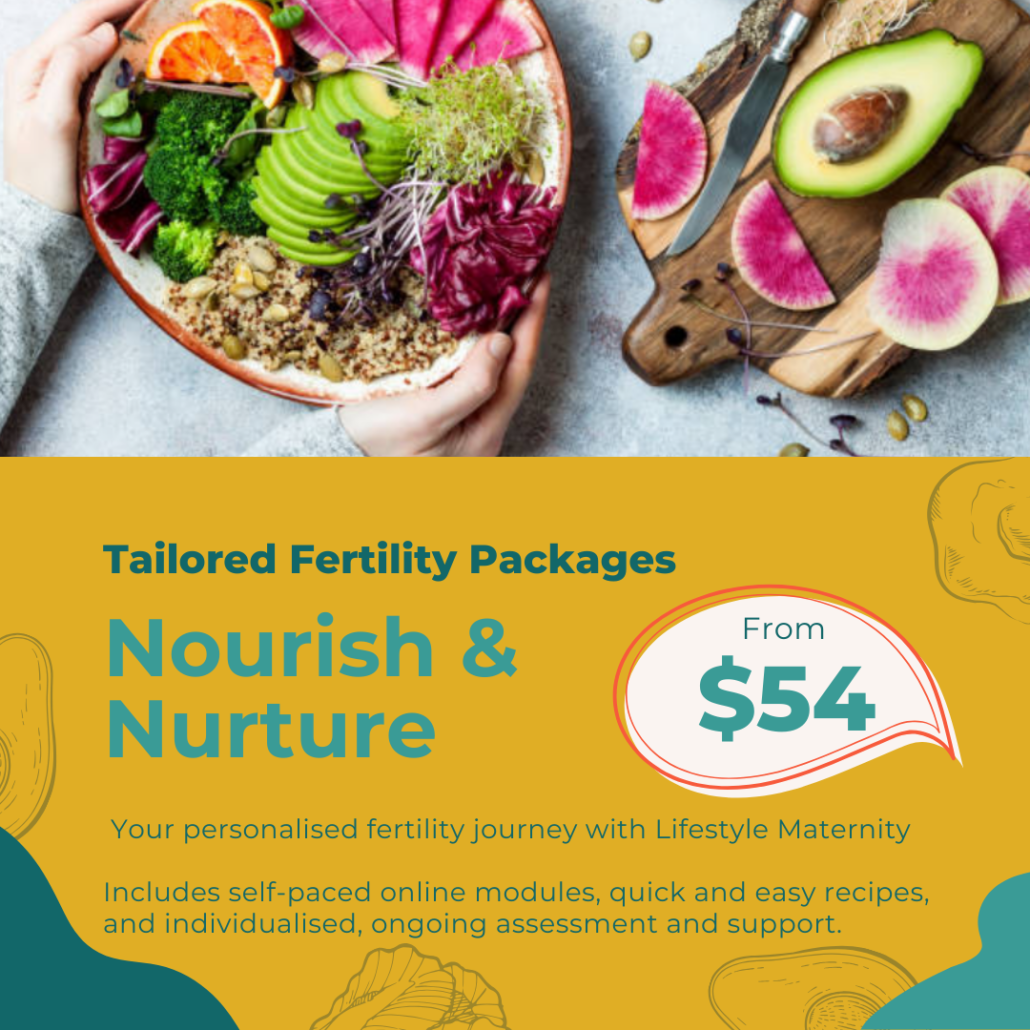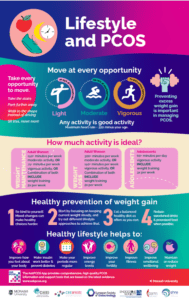If you are trying to conceive, you may wonder if taking supplements can improve your chances of falling pregnant. After all, nutrition plays an important role in reproductive health. Some vitamins and minerals may support fertility in various ways.
However, before you rush to the nearest health store, pharmacy, or order online, there are some things you need to know about supplements and fertility.
What are the best supplements for fertility?
Despite some very clever marketing trying to convince us of otherwise, there are no specific supplements that will help you fall pregnant. However, there ARE some vitamins, minerals and other nutrients that are worth considering for their impact on your fertility.
The following has PROVEN links to improved pregnancy outcomes.
FOLIC ACID. This is the most important supplement to take when trying to conceive, as it helps prevent neural tube defects in the developing baby. Most women need to take a supplement that contains at least 400 micrograms (mcg; µg) of folic acid per day, starting at least one month before conception and during the first trimester (at least). Some women need higher amounts – these include women with diabetes, a higher body mass index, those with a family history of neural tube defects, or who are taking certain medications.
Additionally, while iodine is not directly related to improving fertility it is essential to take during all of pregnancy and while breastfeeding. Iodine is involved in growth and development, especially for a baby’s brain. Studies show that the Australian population is mildly iodine deficient. Pregnant women need 220 micrograms of iodine per day. All women should take a daily supplement with 150 micrograms during pregnancy and breastfeeding.
In the MAYBE group we have a handful of supplements that MAY improve fertility OR have links to better health IF an IDENTIFIED DEFICIENCY has been detected.
VITAMIN D. This vitamin is essential for many functions in the body, including immunity, bone health, and hormone production. Some studies have suggested that vitamin D deficiency may be associated with infertility, miscarriage, and poor pregnancy outcomes. A blood test will tell you if you do not have enough Vitamin D in your blood. Vitamin D comes from the sun, supplements, and a small amount from food.
Most of the Vitamin D your body needs comes from the action of sun on your skin. Do not get sunburnt as this will increase your risk of skin cancer. If you are low in Vitamin D you will require an additional Vitamin D supplement of at least 1000IU.
IRON: Iron deficiency anaemia affects over one in three women of childbearing age. An iron supplement could be useful and may be recommended by your doctor or dietitian if your stores are low. If this is the case, a separate iron supplement is recommended (rather than relying on it from a multivitamin – some have a little (e.g. many of the preconception and pregnancy ones), and some have more (e.g. Elevit), but none have ENOUGH to correct a deficiency).
Iron supplements can be important, but they can have side effects, including: an upset stomach or constipation. Different tablets of timing of tablets can help – discuss with your dietitian or pharmacist if this is the case.
ZINC and SELENIUM: The Fertility Society of Australia and New Zealand’s preconception health special interest group provide a fantastic review of how some micronutrients might be linked to improving fertility. This review has focused on zinc and selenium.
This expert group acknowledge that, despite the growing number of studies on the effects of micronutrient supplementation on subfertility, inconsistencies in the literature relating to males and the lack of studies on females, prevent any firm recommendations about doses or duration of treatment. (In simple terms – the studies that have been done have not been done well enough to tell us the answer yet!)
However, the group do point out that none of the studies identified any detrimental effects of zinc or selenium on male or female fertility when administered below the recommended daily intake.
OMEGA-3 FATTY ACIDS: Omega-3s are important for brain and eye development as baby grows in the womb, as well as for reducing overall inflammation at a cellular level. In pregnancy, they have been linked to a reduction in the risk of preterm birth and may lengthen pregnancy too.
In a recent study called the “Time to Conceive” cohort, it was found that there was no strong association between serum concentrations of omega-3 fatty acids and the probability of conceiving naturally in a group of over 200 women. However, when this same study team looked at around 900 women undergoing IVF in their cohort, there was an association between omega-3 intake and conceiving. (They note that as this wasn’t the type of high-level study (randomised controlled trial) that allows us to say, ‘doing this caused this to happen’. Being a less controlled ‘cohort study’ they can only say ‘one thing happened at the same time as another thing’.
As these essential fats cannot be made by the body, they must be obtained from food or supplements. While it seems like this is a green light for omega-3 supplements, we need to stop and consider other studies (as well as sources of omega-3). Omega-3 supplements used to be all the rage for heart health, but recent position papers from the Heart Foundation have shown that it is eating FOOD SOURCES of omega-3 rather than popping the SUPPLEMENTS have the most positive impact on heart health. Perhaps it’s the same for fertility and pregnancy?
The good news is that fish and seafood should be an important part of your diet in pregnancy. It is an excellent source of protein, is low in saturated fat, has high amounts of omega 3 and can be a good source of iodine. Great sources of omega-3 include: canned sardines, salmon (fresh or canned), some canned tuna, as well as mackerel and herrings.
…and what are some good ‘swaps’ for those claims that don’t quite hold true?
COENZYME Q10 (CoQ10): This is a natural antioxidant that helps protect the cells from oxidative stress and supports energy production. It is also known as UBIQUINOL. While many fertility blogs seem to recommend taking a CoQ10 supplement to help improve egg quality in women and sperm quality and motility in men, these parameters and enhance fertility two recent papers have shown this not to be helpful.
When wanting to find information to support your beliefs it can be easy to just read and believe small studies that align with what you are wanting to read. In the ‘how to judge good science’ approach, the studies at the pinnacle of the ‘trust’ pile are ones that have gathered a LOT of studies together, pooling the results AND systematically assessing them for how well they were done AND written up.
One such study by a group of Greek researchers found that oral supplementation of CoQ10 had no effect on live birth rate or miscarriage rate. CoQ10 may increase a clinical pregnancy rate, but this did not affect the overall pregnancy rate. Similarly, another clinician-research team from Australia and New Zealand that gathered findings from many studies found there was low- to very low-quality evidence to show that taking an antioxidant supplement may benefit subfertile women. They concluded that there was limited evidence in support of supplemental oral antioxidants for subfertile women.
What about nature’s antioxidants? Sorry, bad dietitian joke there. Well, this is something for which there is a LOT of evidence. Antioxidants are found in many fruits and vegetables and may prevent some of the damage caused by free radicals by neutralising them. These include the nutrient antioxidants, vitamins A, C and E from food and not tablets!), and the minerals copper, zinc and selenium.
Other dietary food compounds, such as the phytochemicals in plants, are believed to have greater antioxidant effects than vitamins or minerals. These are called the non-nutrient antioxidants and include phytochemicals, (such as lycopenes in tomatoes and anthocyanins found in cranberries)
How much should I take?
The dosage of supplements may vary depending on your age, weight, health status, and fertility goals. It is always advisable to consult with your doctor or specialist maternal health dietitian before taking any supplements, especially if you have any medical conditions or are taking any medications. Your health care provider can help you determine the optimal dosage for your needs and monitor your response.
Are there any side effects or risks?
Most supplements are generally safe and well-tolerated when taken at the recommended doses. However, some supplements may interact with other medications or supplements, or cause allergic reactions or gastrointestinal discomfort in some people.
Some supplements may also have adverse effects on pregnancy or breastfeeding if taken in excess or without medical supervision.
Therefore, it is important to read the labels carefully, follow the instructions, and report any unusual symptoms to your doctor. Taking more than one supplement that contains the same ingredient can increase your risk of toxicity or overdose.
One specific example that has been in the news recently is vitamin B6. This vitamin, present in many multivitamin and mineral supplements, can cause <strong>peripheral neuropathy</strong>. In response, the TGA (therapeutic goods association) has strengthened labelling requirements so products containing daily doses over 10mg of vitamin B6 must carry a warning about peripheral neuropathy. Check the labels of what you are taking!
Do supplements guarantee pregnancy?
Unfortunately, no. Supplements are not magic pills that can make you pregnant overnight. They are meant to support your overall health and wellness, and possibly enhance your fertility potential. However, there are many other factors that influence your ability to conceive. This can include your age, lifestyle, genetics, timing of intercourse, and underlying medical conditions.</p>
Therefore, taking supplements alone may not be enough to overcome these challenges. You may also need to make some lifestyle changes (such as quitting smoking, reducing stress, eating a balanced diet, exercising regularly) and seek professional help (such as fertility tes
ting or treatment) if you have been trying for more than a year without success (or six months if you are over 35).
The bottom line
Supplements can be a helpful addition to your fertility journey, but they are not a substitute for a healthy lifestyle or medical care. If you are interested in taking supplements for fertility, talk to your doctor first to find out what is best for you and your partner.
Remember that every person is unique and what works for one may not work for another. Be patient and optimistic, and don’t give up on your dream of having a baby.
Vitamins and minerals are important but it is important to think about food and meals to get all the nutrients you need. If you would like further information book an appointment with a Lifestyle Maternity Dietitian or enrol in an online, self-paced course.
IMAGE CREDIT: Unsplash/Joshua Coleman
IMAGE DESCRIPTION: Colourful pill bottles along shelves with colourful tablets on the floor






 Find us on
Find us on